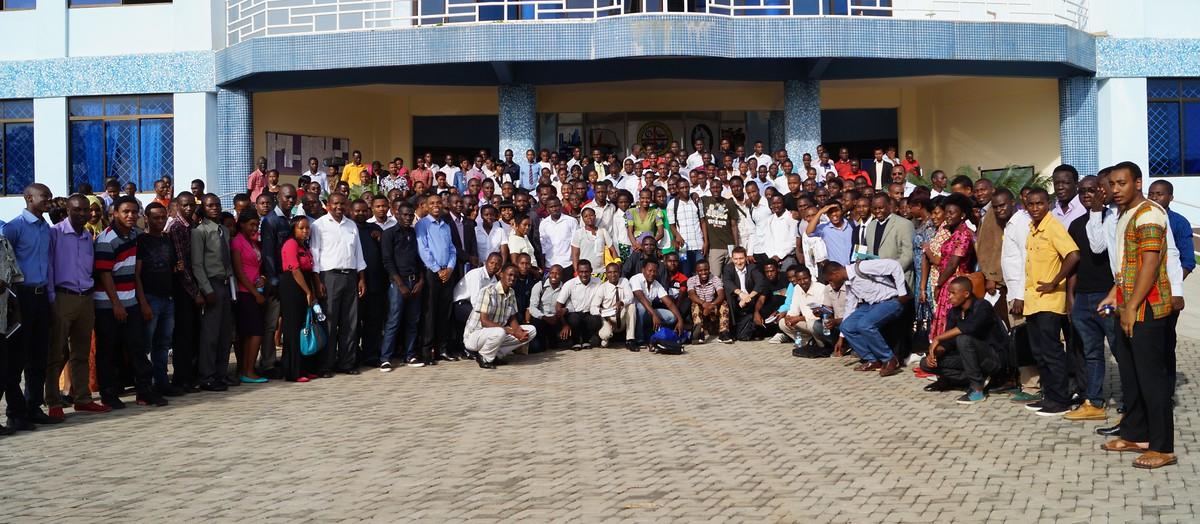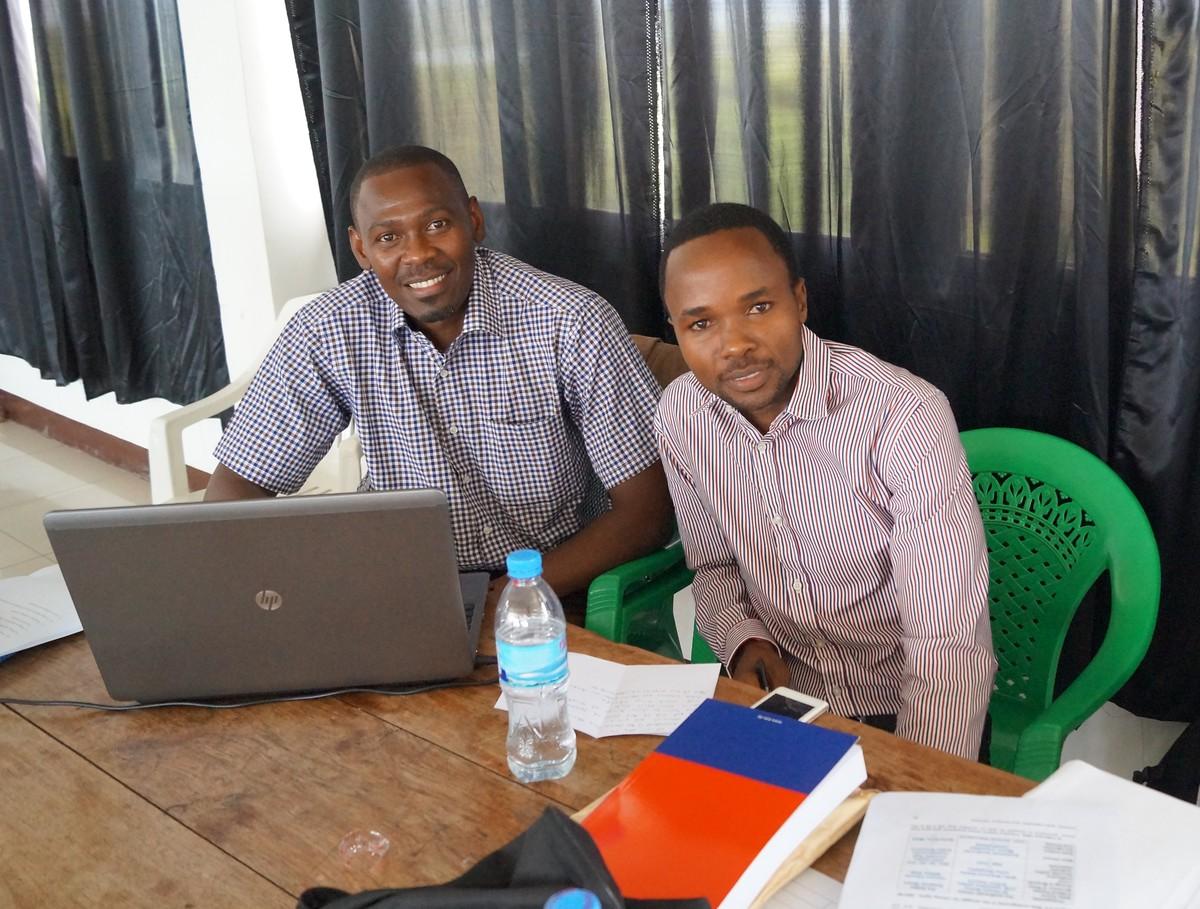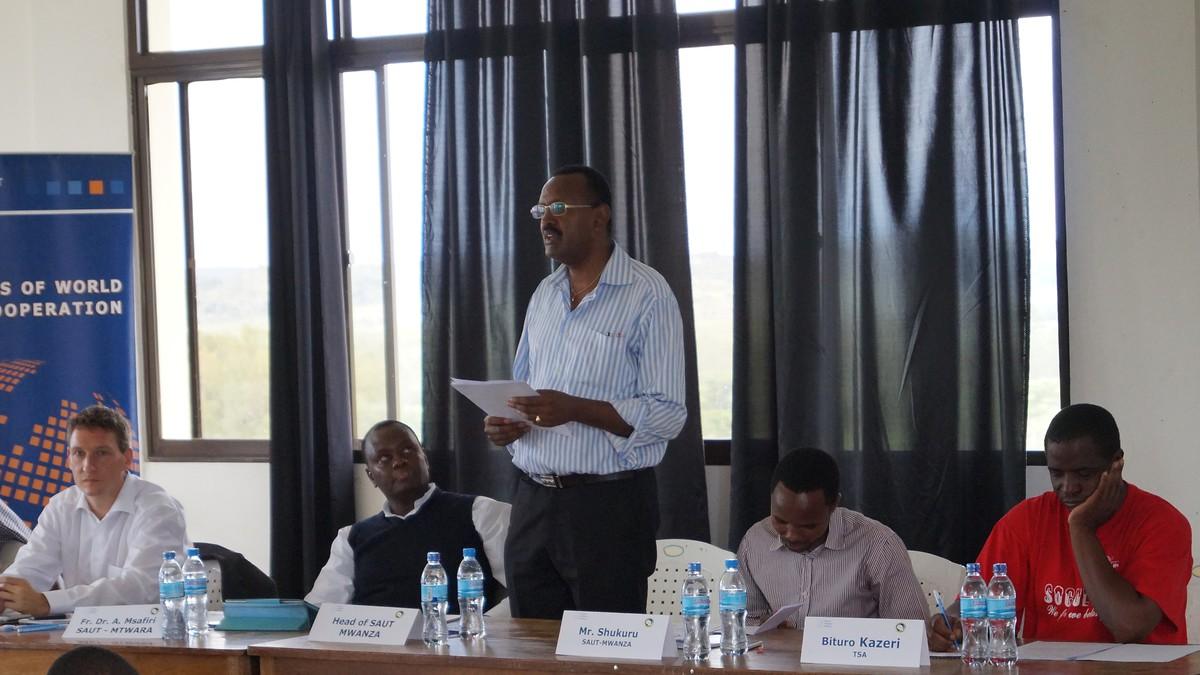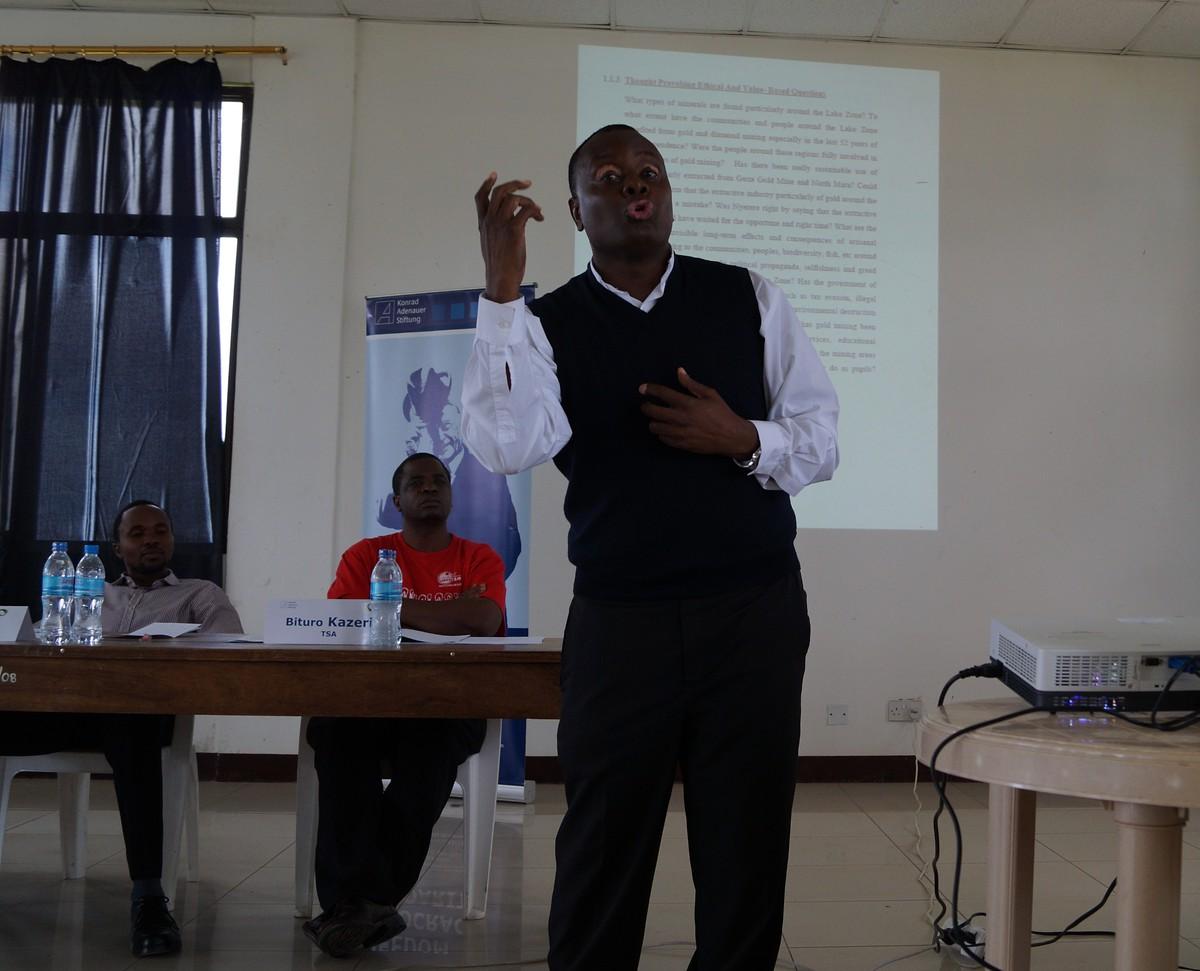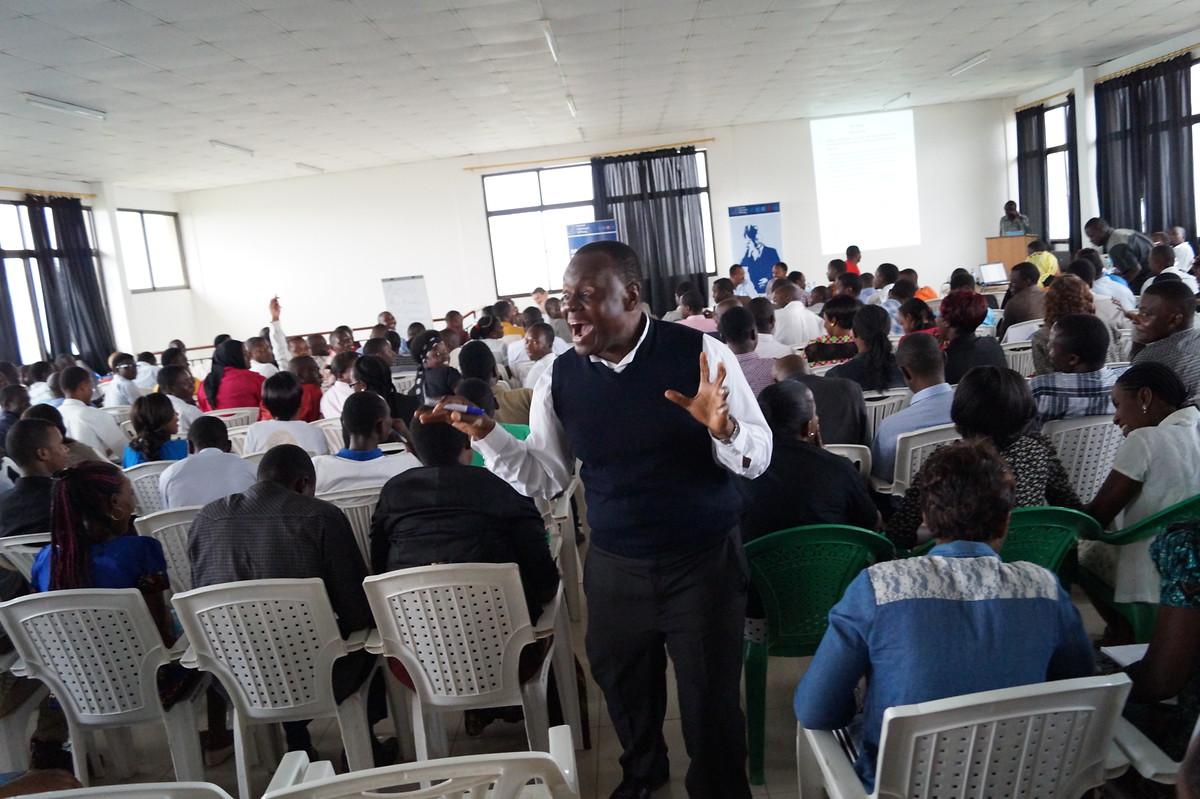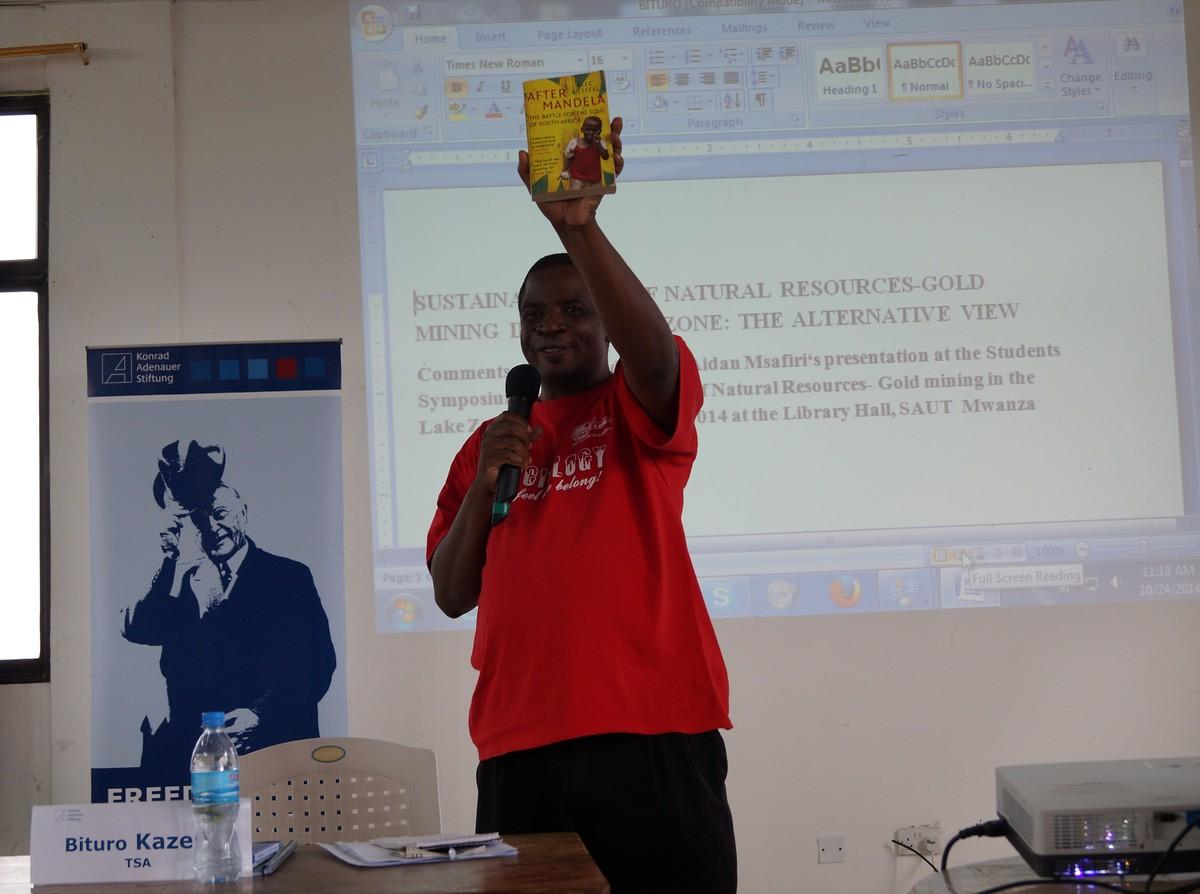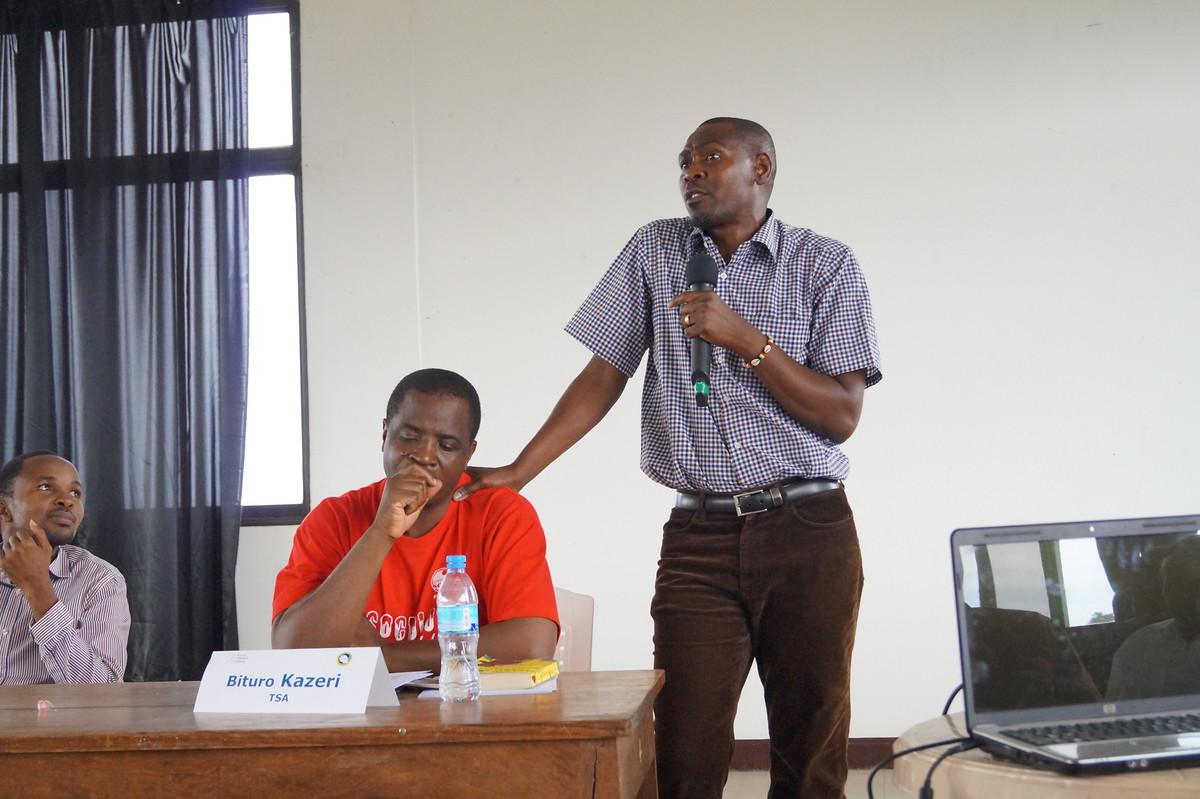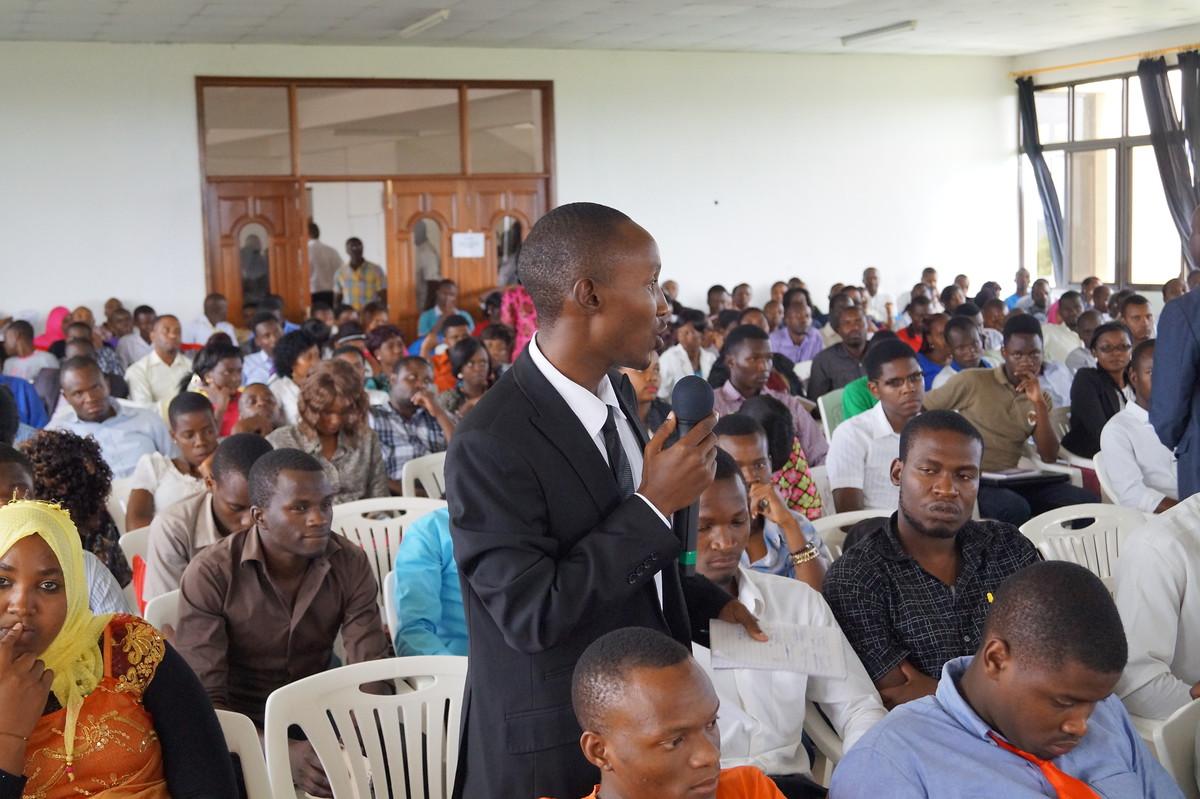Event reports
The symposium started with an opening speech of the KAS Tanzania representative Stefan Reith. In this he welcomed the students and thanked CETA, SAUT and the presenters for the organization and participation in the symposium. After that the head of the SAUT University Mwanza, Dr. Neguise, welcomed the guests as well and drew attention to the importance of a sustainable management and use of natural recourses to support the long-term development of the country.
Subsequently the main presenter of the day, Dr. Aidan Msafiri, head of the Faculty of Philosophy and Ethics at the Stella Maris Mtwara University and expert for natural resources, emphasized the enormous potential of natural resources in Tanzania and the important challenges which are connected with it. Further Dr. Msafiri stressed the necessity of good governance and the compliance of ethical principles by using the mineral resources. Because of his interaction with the audience and his impulsive manner he immediately caught the attention of those where present. In his presentation about the "SUSTAINABLE USE OF NATURAL RESOURCES - GOLD MINING IN THE LAKE ZONE", he gave an overview of the current state of gold mining in the area of Lake Victoria and set out a scientific analysis of the weaknesses, problems and risks of the mining industry. In conclusion, he putted the topic in an ethical framework and gave possible solutions to the students. He appealed to the younger generation, as the future leaders of the country, to stand up for their rights and to encourage that the enormous potential of natural resources will be used in a sustainable way and to ensure that all Tanzanians will benefit of them.
After the presentation Mr P. Bituro Kazeri, of the Tanzania Sociological Association, and Jimmy Luhende, funder and chairmen of Actions for Democracy and Local Governance (ADLG), commented the speech of Dr. Msafiri. First, Mr. Kazeri, drew attention to the bad conditions under which people work in the mines. Further he emphasized that not just the Tanzanian Government and the international construction groups where responsible for the actual grievances, also the many private miners are neglecting most of the standards. E.g. they are using quicksilver without any protecting clothes for the gold mining and afterwards they are just spilling it into the surrounding waters or soils. The results are massive health and environmental damages. Mining, respecting the security and environmental standards as well as the split of risk and benefit are big macroeconomic tasks, the sociologist said. Especially training and education have to be improved to integrate a wide population in this topic.
Further Mr. Luhende criticized in his speech the lack of involvement of the population in the definition of mining sites, the distribution of income and in the creation of jobs. He also appealed to the young guests to be responsibility for themselves and to take their own initiative to take part in the public decision making process. After the presentation was reviewed in detail, Mr. Shukuru summarized the main findings and results and the participants had the opportunity to have lunch and to debate about the topic among them.
The second half of the day was reserved for extensive discussion with all stakeholders. This opportunity was well used by the students to mention questions and to express opinions. Especially questions about the role of the youth and the opportunities on the labor market where mentioned. While the most students criticized the government and the international investors, some others had a kind of self-reflection of their own role, as the educated elite of the country, as well.
In conclusion, the participants thanked the organizers CETA and KAS for the invitation and for the opportunity to discuss and exchange views and information’s about that important topic in such an independent forum. The presentations and content of the symposium will be published in the next CETA Journal on Civic Education to reach even more people, which had not the chance to attend to the symposium.



